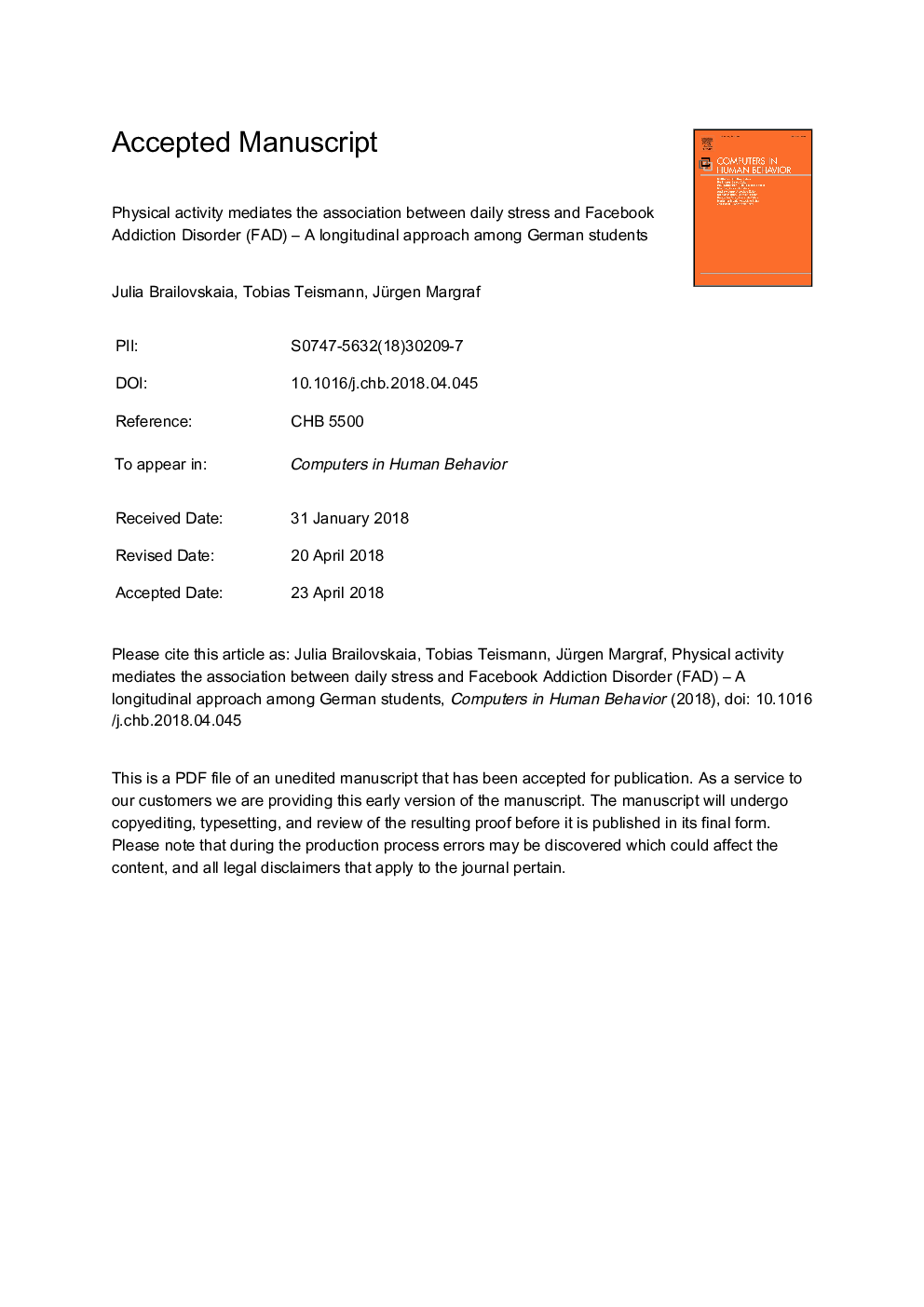| Article ID | Journal | Published Year | Pages | File Type |
|---|---|---|---|---|
| 6835849 | Computers in Human Behavior | 2018 | 25 Pages |
Abstract
Physical activity has regularly been demonstrated to be a protective factor against stressful experiences. The present study investigated whether physical activity buffers the association between daily stress and Facebook Addiction Disorder (FAD) over a period of one year (first measurement time point, T1: October 2016; second measurement time point, T2: October 2017). In a sample of 122 German Facebook users (82.8% women; age at T1: Mâ¯=â¯21.70, SDâ¯=â¯3.67, range: 17-38), physical activity at T1 mediated the significant positive relationship between chronic daily stress at T1 and FAD at T2 (total effect: pâ¯=â¯.036; direct effect: pâ¯=â¯.164). Furthermore, at T2, FAD was significantly negatively associated with positive mental health (i.e., high level of emotional, social, and psychological well-being). The current study provides first longitudinal results of possible risk associated with and potential protective factors of FAD. These results demonstrated that this addictive behavior is positively related to chronic daily stress and negatively related to physical activity. Practical applications for future studies and limitations of the present results are discussed.
Related Topics
Physical Sciences and Engineering
Computer Science
Computer Science Applications
Authors
Julia Brailovskaia, Tobias Teismann, Jürgen Margraf,
